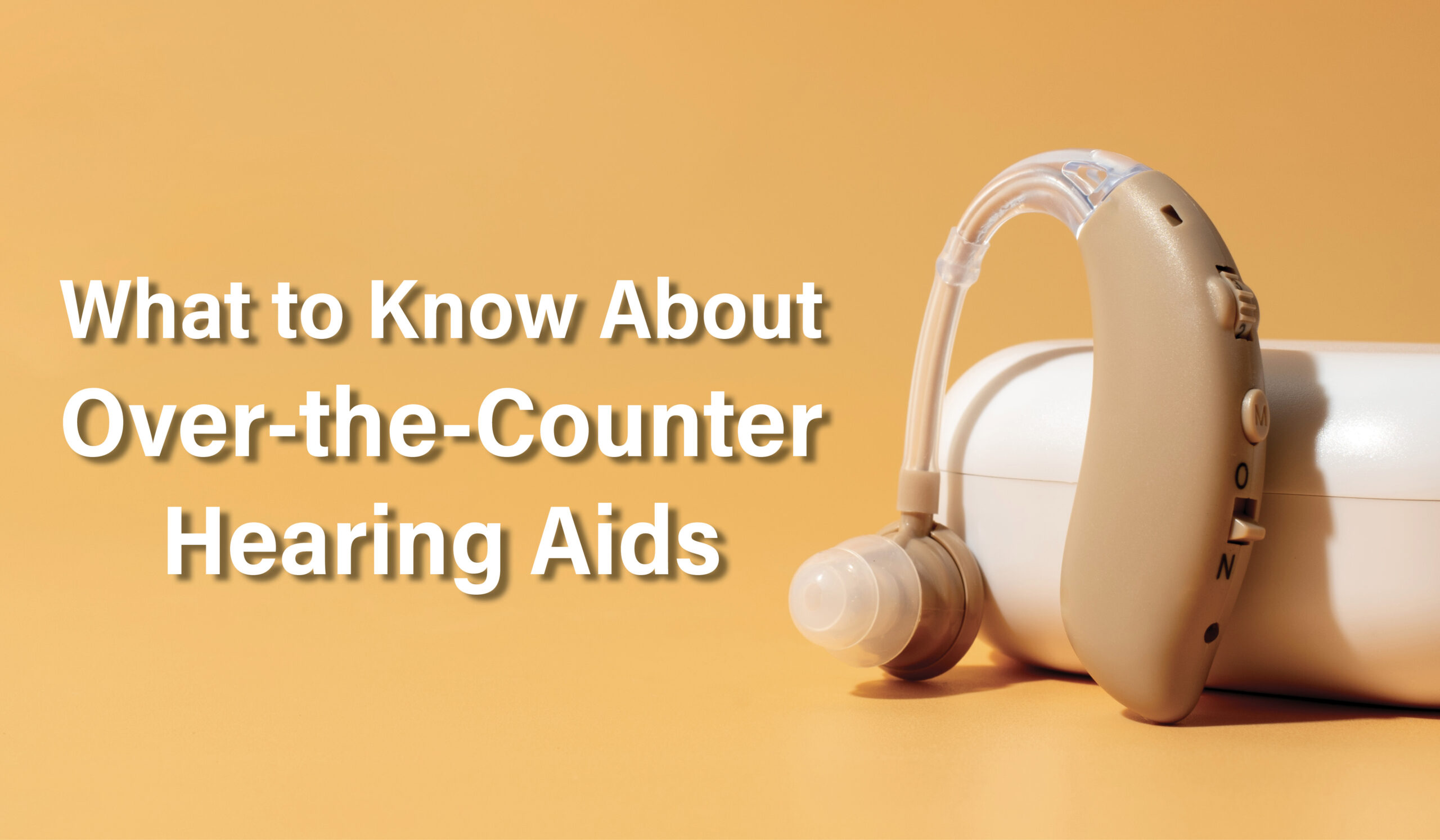If you are experiencing hearing loss, you may be wondering if over-the-counter hearing aids are a good option for you. Until recently, the only way to get a hearing aid was to go to a hearing health professional and get a prescription. Now, adults 18 and older with mild-to-moderate hearing problems can find a more cost-effective solution with over-the-counter hearing aids.
If you are experiencing hearing loss, it’s important to see a professional audiologist to get the help you need. A qualified provider can complete a diagnostic hearing test to determine the best way to improve your hearing. This will help rule out any complex ear conditions that can sometimes cause hearing loss including infections, earwax buildup or injuries, all of which can’t be fixed by hearing aids.
With complex conditions ruled out, consumers can buy these devices directly. Here is a brief overview of what you need to know about over-the-counter hearing aids, including who they are right for, what types are available, how much they cost, and where you can get them.
1 – What’s the difference between a prescription hearing aid and an over-the-counter device?
Over-the-counter hearing aids are available without a medical exam, prescription, or professional fitting. These “one-size-fits-most” devices provide a basic level of hearing correction and may be sufficient for some people. While prescription hearing aids are more expensive, they will be able to treat the nuances of different types of hearing loss better with more sophisticated technology. They may also be a good choice for someone who has tried an over-the-counter option without success.
2 – What types of over-the-counter hearing aids are there?
There are two types available: self-fitting and non-self-fitting. Self-fitting devices come with adjustable settings that allow users to customize the device’s sound output according to their own individual needs and preferences. Non-self-fitting devices come preloaded with a few predetermined sound settings and volume control. Overall, both types have their advantages and disadvantages, so it is important for consumers to understand each option before making a decision to get the most out of their device.
3 – Will over-the-counter hearing aids be the same quality as prescription hearing aids?
When it comes to hearing aids, the quality of the device is of utmost importance. The U.S. Food and Drug Administration regulates all types of hearing aids and has set minimum standards for safety and effectiveness that must be met by both over-the-counter and prescription devices. This means that when you purchase an over-the-counter device, you can be sure that it meets strict safety regulations and provides a certain level of sound amplification. However, there will likely be differences in appearance, style, features, and sound quality between over-the-counter devices and those prescribed by a professional audiologist or other qualified provider. Be sure to do your research and read user reviews for information about battery life, warranties and return policies offered.
4 – How do costs compare for over-the-counter hearing aids?
Over-the-counter hearing aids are typically much less expensive than traditional prescription hearing aids, with some models costing as little as a few hundred dollars. The cost of prescription hearing aids varies widely but can run anywhere from $2,000 to $7,000. Compare prices of the over-the-counter options as well as the features among different models to find the best value for your money.
5 – Where can I get an over-the-counter hearing aid?
Over-the-counter hearing aids are available in pharmacies including CVS and Walgreens, some big box stores like Wal-Mart and Best Buy, as well as online.
Acclimating to wearing hearing aids takes time and practice. You should wear your hearing aids frequently to become accustomed to their features and how to adjust the program settings to suit different listening environments. If you find that you are not getting the benefits you expected from your over-the-counter hearing aids, consider consulting with a hearing health care professional, such as an audiologist, otolaryngologist (ear, nose, and throat doctor), or hearing aid specialist.


